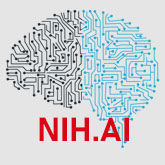NIH.AI Workshop on Hyperparameter Optimization (HPO)
Thursday, July 18, 2-5pm
Meeting Recording: CLICK to view. Check every presentation recording below
Meeting Description:
Hosted by NIH.AI, this highly interactive workshop brought together members of the Intramural Research Program who use or wish to use computational tools for HPO, in order to share methods and resources for getting started. The workshop included targeted presentations with open discussion among peers and hands-on demonstrations across disciplines. The workshop was held at NIH Building 10, FAES Classrooms 6 & 7 (B1C208 & B1C206), on Thursday, July 18, 2019, from 2-5 PM
Meeting Goals:
-
Educate the NIH community on available hyperparameter optimization resources and repositories
-
Foster collaboration between meeting attendees
Agenda and Presentations:
|
2 - 2:30 pm |
Problem Definition, Tools, and Resources – George Zaki (FNLCR), and Jerez Te (CIT)
|
|
2:30 – 3:10 |
Cancer Distributed Learning Environment (CANDLE) + Applications – Andrew Weisman (FNLCR) and Jurgen Heymann (NIDDK) Andrew's presentation: How to run CANDLE on Biowulf Application in single cell clustering: |
|
3:10 - 3:25 |
Break and discussion |
|
3:25 - 3:55 |
HPO applied to Reinforcement Learning – Samar Samarjeet (NHLBI) Presentation: Here |
|
3:55 - 4:15 |
Open Discussion + Survey |
|
4:15 - 5:00 |
Hands-on using CANDLE + Swarm on Biowulf - George Zaki (FNLCR), Andrew Weisman (FNLCR), and Jerez Te (CIT) |
Speakers:
Jurgen Heymann, Ph.D. is a staff scientist in the Kidney Disease Branch at the National Institute for Diabetes, Digestive and Kidney Disease (NIDDK), National Institutes of Health (NIH). His current interest are cellular and molecular processes that are at the origin of focal segmental glomerulosclerosis, a glomerular syndrome often associated with a rapid decline in kidney filtration function. He trained as a chemist at the Swiss Federal Institute of Technology in Zurich, Switzerland and received his PhD in Biochemistry from the Max-Planck Institute for Biochemistry in Munich, Germany, and conducted work in the area of cell and structural biology of membrane proteins and membrane processes there, at the Johns Hopkins University School of Medicine in Baltimore, and the National Cancer Institute in Bethesda before joining NIDDK to engage in translational research.
Samar Samarjeet is a joint Ph.D. student at Johns Hopkins University School of Medicine, Baltimore and National Heart, Lung and Blood Institute(NHLBI). His research area is related to algorithmic developments in the field of molecular dynamics simulations. His current thesis work involves migration of CHARMM MD package to GPUs. He is also working on multiple path sampling of protein dynamics using Reinforcement Leaning.
Jerez Te, Ph.D. is a support scientist (contractor) with the NIH High Performance Computing (Biowulf) Team. He helps the users of Biowulf to efficiently run computational applications on the HPC system and focuses on GPU compatibility and performance for machine and deep learning. In addition, he is responsible for maintaining and documenting a number of scientific applications and assisting users in applying and selecting appropriate analysis tools for their data.
Andrew Weisman, Ph.D. is a High Performance Computing Analyst in the Strategic Data Science Initiatives group at the Frederick National Laboratory for Cancer Research. He works with intramural researchers at the National Cancer Institute and NIH to strengthen their data analysis using machine/deep learning and high performance computing techniques, from software development to algorithm development and analysis.
George Zaki, Ph.D. is a Bioinformatics Manager with Frederick National Laboratory for Cancer Research (FNLCR). He supports investigators at the National Cancer Institute and Frederick National Lab in their HPC application development related to data science, machine learning, code profiling and optimization on GPUs, and pipeline integrations on HPC systems.
Questions?
Please contact either George Zaki (george.zaki@nih.gov) or Miles Kimbrough (miles.kimbrough@nih.gov).
